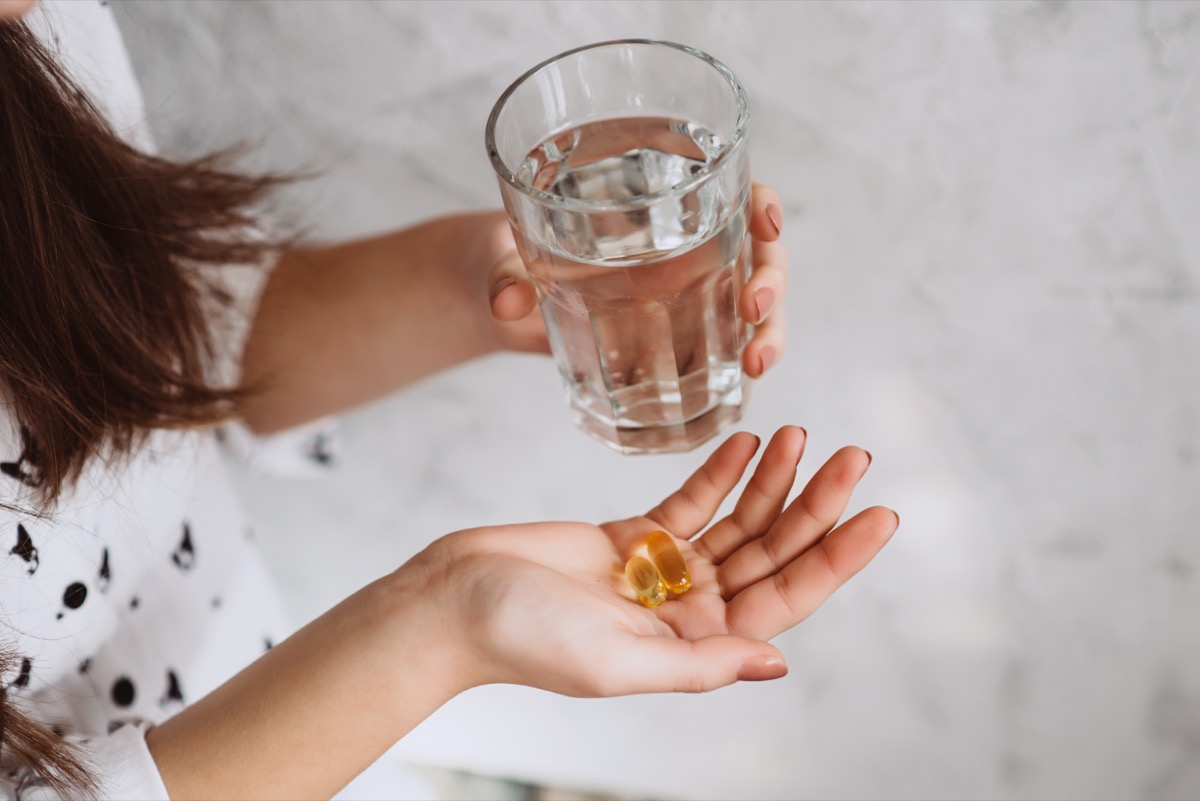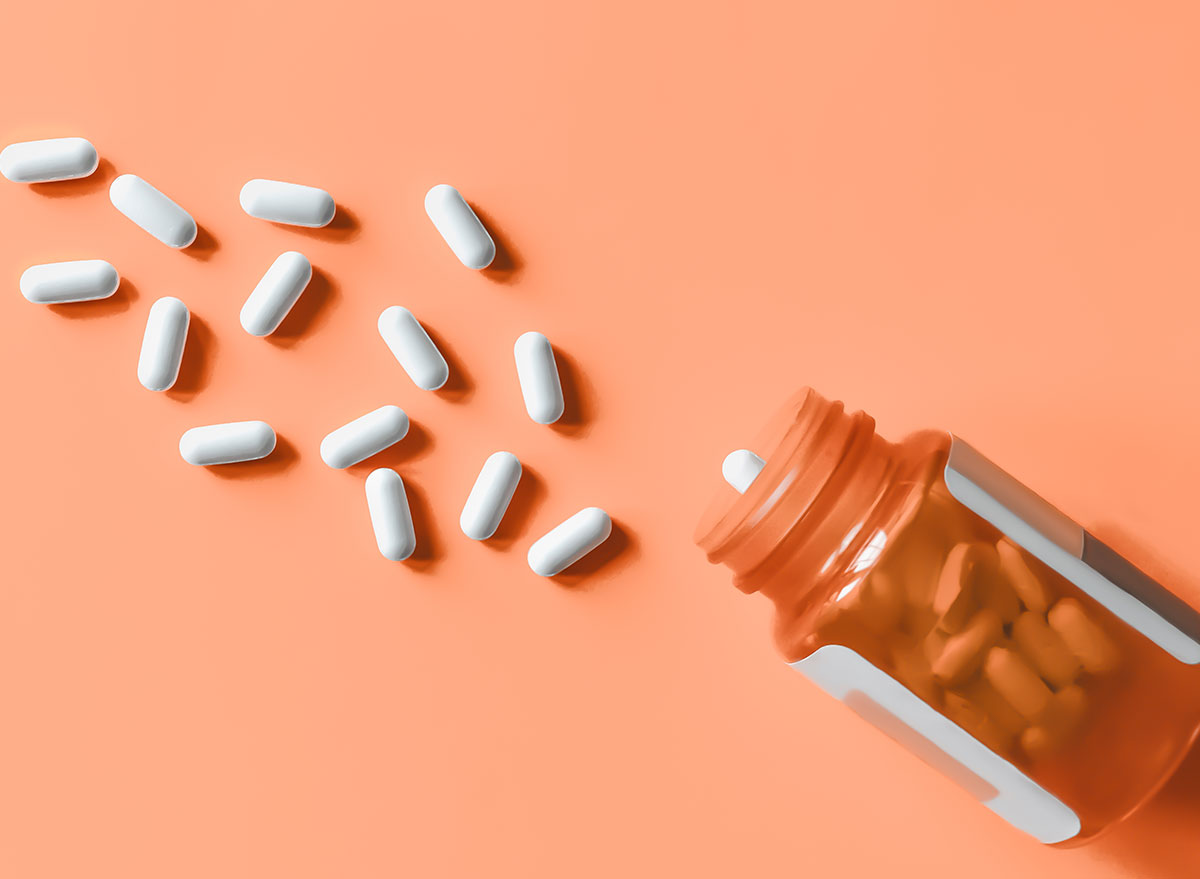This Medication May Help Treat COVID-19, Experts Say
In 2020, COVID-19 was the third leading cause of death in the U.S., behind heart disease and cancer. This year, the Delta variant, which is two times more contagious than previous variants, is believed to cause even more severe symptoms in those who are unvaccinated.
While the COVID-19 vaccine is the most effective way to reduce your chances of experiencing adverse symptoms of the infectious disease, experts are in the midst of testing an antiviral treatment that could help stop the virus in its tracks, shortly after exposure.
RELATED: This Unexpected Vitamin May Help Weaken COVID Symptoms
Fred Hutchison Cancer Research Center in Seattle, Washington is just one place that’s been enrolling patients who’ve recently been diagnosed with COVID-19 in clinical trials to help treat the infectious disease. As CNN reports, clinical trials for oral antiviral treatment are currently taking place at the international level.
The news outlet followed up with two patients who participated in the trial, Miranda Kelly (44) and Joe Kelly (46) of Seattle. Miranda, who has diabetes and high blood pressure, was having trouble breathing, which led her to check into the emergency room. Later, she learned that both she and her husband had tested positive for COVID-19. Petrified at the thought of leaving their five teenagers behind, they agreed to join the clinical trial.
They began taking four pills, twice daily, the day after their diagnosis. They hadn’t been informed if they were prescribed an antiviral drug or a placebo pill but within a week, they reported that their symptoms had improved. By the end of the second week, they had both made a full recovery.

“I don’t know if we got the treatment, but I kind of feel like we did,” said Miranda Kelly, as quoted by CNN. “To have all these underlying conditions, I felt like the recovery was very quick.”
Experts believe this short-term regimen of daily pills may be able to prevent symptoms from developing shortly after a COVID-19 diagnosis.
“Oral antivirals have the potential to not only curtail the duration of one’s COVID-19 syndrome, but also have the potential to limit transmission to people in your household if you are sick,” Timothy Sheahan, a virologist at the University of North Carolina-Chapel Hill, who has played a role in pioneering these therapies, said to CNN.
Currently, there are three antivirals that seem “promising” in combating COVID-19 in its early stages, according to Carl Dieffenbach, director of the Division of AIDS at the National Institute of Allergy and Infectious Diseases. The top medication as of right now is molnupiravir from Merck & Co. and Ridgeback Biotherapeutics. Following behind are Pfizer’s antiviral, PF-07321332, and Roche and Atea Pharmaceuticals’ AT-527.
How do these antiviral medications work, exactly? Essentially, they hinder the virus’s ability to replicate in human cells. Currently, only one antiviral drug, known as remdesivir, has been approved to treat COVID-19. However, it’s not an oral drug and it’s also not intended for widespread use. It’s given to patients who’ve been hospitalized from COVID-19.
More trials are set to take place later this year, however, one challenge that could slow testing down is the inability to recruit enough people for the clinical trials. Still, global healthcare company Merck & Co. remains hopeful, having predicted in June that it could make 10 million courses of therapy available by the end of the year, considering the clinical trials deem molnupiravir an effective drug.
Until then, it’s never a bad idea to stock up on these Popular Foods That Boost Your Immune System, Says Dietitian. Then, don’t forget to sign up for our newsletter.









